Krista Wissing is a licensed therapist who has facilitated expressive arts therapy experiences for people impacted by brain injury, Alzheimer’s disease, medical illness, addiction, co-occurring disorders, and trauma. She founded The Rediscovery Project in 2012 and is currently the Day Program Coordinator for Brain Injury Network of the Bay Area. Expressive writing has been critical to Krista’s own healing process, and her work has appeared in The Molotov Cocktail, Bitchbuzz.com, and Know Journal (upcoming). She recently taught a workshop for people with brain injuries at the Institute for Poetic Medicine in Larkspur, California. We asked her to blog about the experience.
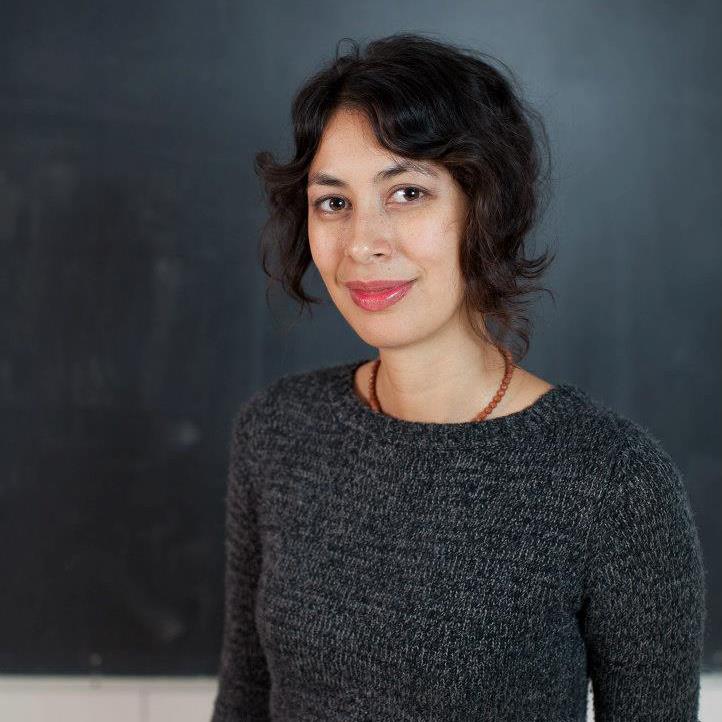 In my years of working with people who’ve experienced an acquired brain injury (ABI), I often hear how destabilizing and isolating the cognitive, emotional, social, and physical aftermath of ABI can be.
In my years of working with people who’ve experienced an acquired brain injury (ABI), I often hear how destabilizing and isolating the cognitive, emotional, social, and physical aftermath of ABI can be.
The thing about ABI is that nine times out of ten there is no warning. Be it a head trauma, stroke or a virus attacking the brain, ABI barrels in like an unexpected wind and divides one’s life narrative into two—life before and life after brain injury.
It’s the kind of phenomena that rocks one’s foundation to the core.
It’s the kind of phenomena that leaves the bearer asking tough questions. Why did this happen to me? What kind of life lies ahead? Where and with whom do I belong? And what of my dreams? My purpose? My identity? My faith?
My Right Arm
Blake Herod
My right arm was my buddy. Grade school
rock and ball throwing. Nose
and scab picking. Young breast holding
nipple rolling. Holder of all the
body making, body destroying
drugs, liquor, food, for a good time
call, wait a minute, hold this.
Can you climb all the way to the
top, gesture drawing, paintbrush holding
steering wheel with three on the
tree, 5-speed, with granny gear,
floor shifting, board paddling wave
riding. Pool lap swimming. Nail pounding,
board lifting, torch holding, bike riding,
throttle whacking, old buddy.
My future by building the foundation.
Now it’s not.
It’s the kind of life-altering experience that holds the transformative potential of the Hero’s Journey and merits the healing elixirs of poetry, art, and community.
This is the heart and soul of the Rediscovery Project, a ten-week group that supports ABI survivors in uncovering their own Hero’s Journey through poetry and expressive art. The project culminates by bridging project participants with the community at large through a public poetry reading and print anthology.
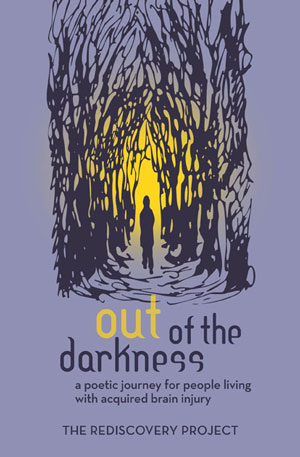 The project was conceived of in 2011 during a discussion I had with poetry therapist John Fox, CPT. Years earlier, during grad school, I attended John’s poetry therapy class and felt an affinity for his work with poetry as healer. By 2012, John’s organization, Institute of Poetic Medicine, was on board to graciously fund the program. Rediscovery Project was launched later that year at Brain Injury Network of the Bay Area and continued in 2013, thanks to funding from Institute of Poetic Medicine, P&W’s Readings/Workshops program, and Bread for the Journey-Marin Chapter.
The project was conceived of in 2011 during a discussion I had with poetry therapist John Fox, CPT. Years earlier, during grad school, I attended John’s poetry therapy class and felt an affinity for his work with poetry as healer. By 2012, John’s organization, Institute of Poetic Medicine, was on board to graciously fund the program. Rediscovery Project was launched later that year at Brain Injury Network of the Bay Area and continued in 2013, thanks to funding from Institute of Poetic Medicine, P&W’s Readings/Workshops program, and Bread for the Journey-Marin Chapter.
When people who suffer come together to heal, magic happens. To bear witness to this is sacred. If we listen closely and with care, what might we hear? If we lean in, what might we feel? Might we hear the Hero’s call to adventure—its cadence, pulse, and urgency? Might we feel its gravitational pull, even at its most tentative, to life experiences that shake, shift, and shape us?
And when we finally wake up to our own Hero’s Journey, how do we explore the truth of what brings us here today?
Mosaic
Philippa Courtney
The white wolf wails inside my soul,
cries in the darkness—Make me whole.
Summon the shaman.
Fan the flame.
Scatter the ashes—chant my name.
Gather the pieces, shard and sliver
silent brain cells in a quiver
Fly like an arrow through the night.
Sparks ignited;
second sight.
Broken open,
given form.
Lose it all; be reborn.
Photos: Top: Krista Wissing. Credit: Kari Ovik. Lower: the anthology of work by participants in Wissing's classes.
Major support for Readings/Workshops in California is provided by The James Irvine Foundation. Additional support comes from the Friends of Poets & Writers.





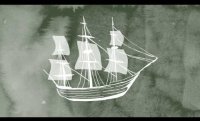
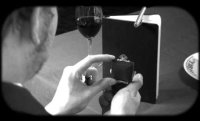
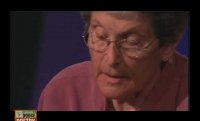
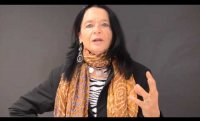
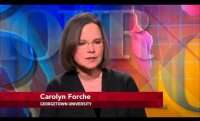
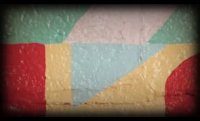
 In my years of working with people who’ve experienced an acquired brain injury (ABI), I often hear how destabilizing and isolating the cognitive, emotional, social, and physical aftermath of ABI can be.
In my years of working with people who’ve experienced an acquired brain injury (ABI), I often hear how destabilizing and isolating the cognitive, emotional, social, and physical aftermath of ABI can be. The project was conceived of in 2011 during a discussion I had with poetry therapist John Fox, CPT. Years earlier, during grad school, I attended John’s poetry therapy class and felt an affinity for his work with poetry as healer. By 2012, John’s organization, Institute of Poetic Medicine, was on board to graciously fund the program. Rediscovery Project was launched later that year at Brain Injury Network of the Bay Area and continued in 2013, thanks to funding from Institute of Poetic Medicine, P&W’s Readings/Workshops program, and Bread for the Journey-Marin Chapter.
The project was conceived of in 2011 during a discussion I had with poetry therapist John Fox, CPT. Years earlier, during grad school, I attended John’s poetry therapy class and felt an affinity for his work with poetry as healer. By 2012, John’s organization, Institute of Poetic Medicine, was on board to graciously fund the program. Rediscovery Project was launched later that year at Brain Injury Network of the Bay Area and continued in 2013, thanks to funding from Institute of Poetic Medicine, P&W’s Readings/Workshops program, and Bread for the Journey-Marin Chapter.